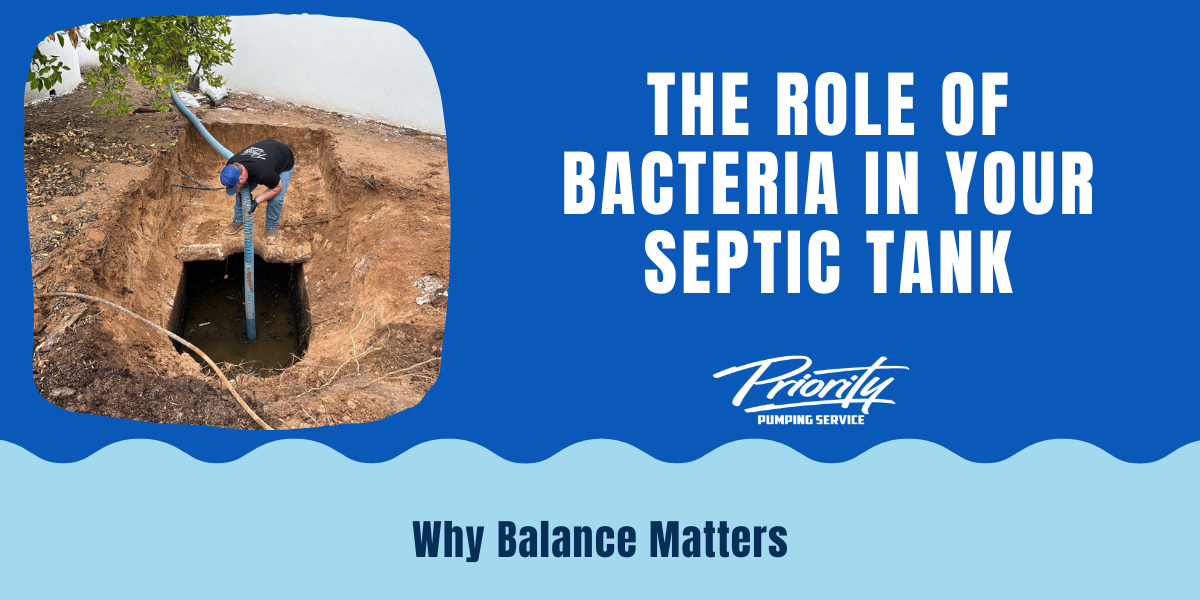Your septic tank relies on a delicate balance of bacteria to break down waste and keep your system running smoothly. The right bacteria in your septic tank work tirelessly to decompose solids and help your system function efficiently. Maintaining this balance is crucial to preventing blockages, costly repairs, and system failures. Here’s why bacteria play such a vital role in your septic tank and how you can ensure the right balance.
How Bacteria Helps Your Tank Function
Bacteria are the unsung heroes of your tank. They break down organic matter, turning it into liquid that can safely flow into the drain field. Without these bacteria, solid waste would accumulate in the tank, causing backups and potential system failure. These microorganisms digest waste and reduce the buildup of sludge, which allows your septic system to function at peak performance.
The most important thing to remember is that the bacteria in your septic tank need a healthy environment to thrive. Factors like improper waste disposal or harsh chemicals can kill off these essential bacteria. When that happens, the breakdown process slows down, and your tank could quickly become overloaded with waste.
Why Balance Matters: Too Much or Too Little?
Achieving the right balance of bacteria is essential. Too few bacteria can lead to sluggish decomposition, while too many can overwhelm the system. Both scenarios can result in inefficient waste breakdown and costly issues down the line.
The best way to maintain a balanced bacterial population is to avoid pouring harmful chemicals down your drains. Additionally, routine maintenance, including professional pumping, ensures that your septic tank doesn’t become overloaded with waste that bacteria can’t process fast enough.
How to Keep Your Septic Tank’s Bacteria in Check
To maintain the balance of bacteria in your tank, take proactive steps to protect and nourish them. Avoid flushing non-biodegradable items like wipes or grease, which can harm bacteria. Regular septic inspections and pumping also help ensure everything is running smoothly.
By understanding the role of bacteria in your septic tank and how balance matters, you can take the right actions to keep your system healthy for the long haul. Remember, a well-maintained tank means fewer problems and fewer repairs down the line.




